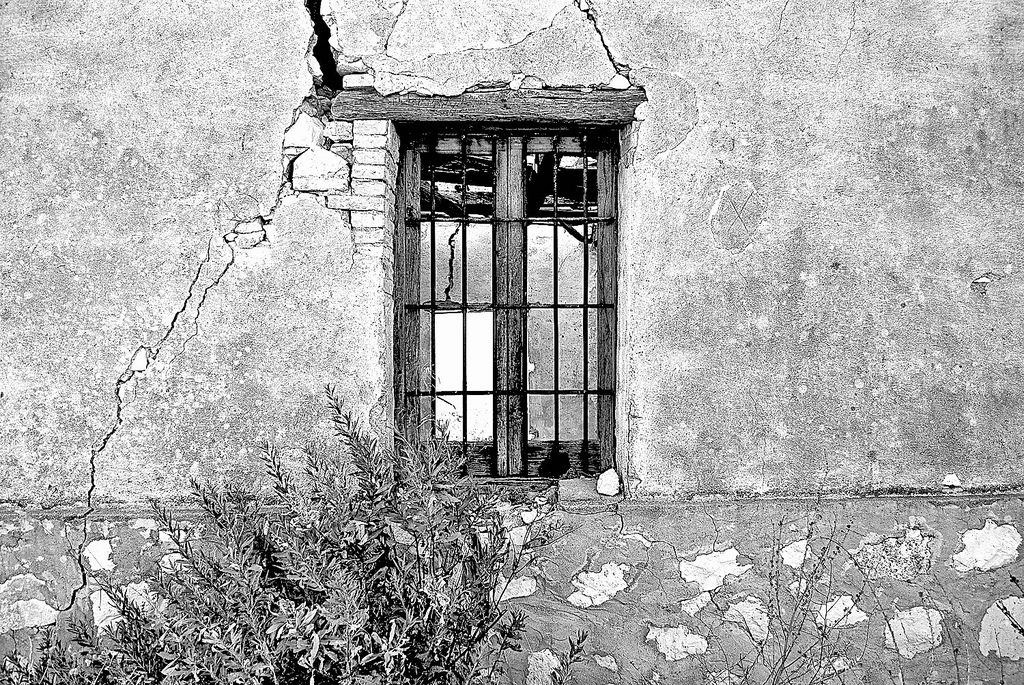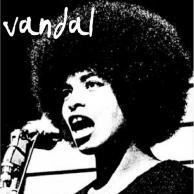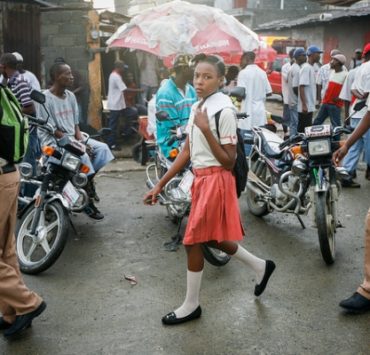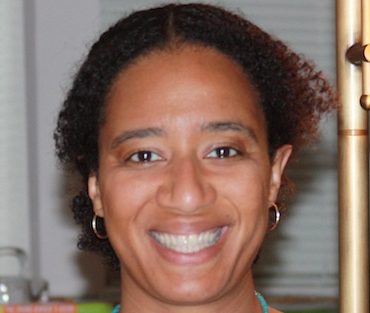
When my father was a child, he learned to draw a perfect replica of the British flag—the Union Jack with all its crisscrossing red and blue strips and white trim. Egypt was a British colony and children in village schools across the country learned this skill at an early age and would be rewarded for their precision. Like all children of the British Empire, my father knew the names of all the colonies and could point them out on a map. He memorized all the words to “God Save the Queen.” But the village school-teacher was an ardent nationalist so this was my father’s just-in-case education—as in just in case the Brits decided to stroll into the schoolroom for a surprise visit, Teacher wouldn’t be sacked. On every other day of the year, the students were instructed to universally despise the British and mock them at every chance.
My father would draw British flags with orange crayon flames leaping from its seams, British flags being trampled on by riots of stick-figure Arabs, the British flag with great black X’s through it, and his personal favorite—the one that awarded him a peppermint candy from Teacher—the British flag lying in a puddle of donkey excrement. It was the donkey’s particular look of accomplishment, his thin black lips drawn upwards, his yellow buck teeth exposed, smug at the sight of the tyrant Union Jack lying in a heap of his own waste.
On rare occasions when the headmaster would inspect the classroom, Teacher would remove his classes’ drawings and lock them safely away in the top draw of his desk. Headmasters were awarded their positions by the Minister of Education—an Englishman like all other ministers whose skin reddened ridiculously even in the December sun and who barricaded themselves inside their luxury Nile villas and hardly ever came out. Headmasters, Teacher said, were collaborators, traitors to the Arab cause. In the free Egypt, these collaborators would hold the lowest positions in society—bawwabs, a cross between doormen and indentured servants, and live in huts on the rooftops made out of corrugated aluminum scraps and bits of canvas tarps.
“The headmaster is a dirty British collaborator,” my father would say when he presented his latest drawing of a defiled flag.
“And what do we do with dirty British collaborators?” Teacher would ask.
“We make them our bawwabs in the new Egypt,” my father would reply.
The school teacher was not apparently much of a Marxist. When my father went home after school, it was to his family’s farm in a small village near the famed Rosetta and not 50 miles from the seaside city of Alexandria. He would spend his afternoons gathering eggs from the chicken coop on the roof of the house. And sometimes he would be dispatched to catch a hen or two, bringing them, wings flapping to his mother who would wring their necks and begin to pluck them before they had even stopped twitching. When my grandfather returned home from the farm just before sunset, usually pushing a wheelbarrow full of gifts—sometimes twenty watermelons that the children would roll and store under their beds, sometimes stalks of sugar cane that sent his nine children into hyperactive fits that usually ended in one of them trying to ride the mean old donkey, all the boys that were old enough to walk gathered around him and lined up for maghrib prayers. My grandfather would be the first one to dip his hands and feet into the fountain in the courtyard and splash water on his face. Then he would lead my father and his brothers in prayer, all of them bending and kneeling on mats made out of woven palm fronds that were cleaned by beating them in the sun every morning. The daughters prayed with my grandmother inside, all of them tucking their heads inside white cotton prayer veils as thin as doilies, while the babies and the house cat Toota clamored around them.
After prayers, the whole family would sit around two round wooden tables in the courtyard and eat their dinner—a roasted hen dusted in sumac, a stack of sun-baked pita, a plate of chopped tomatoes and cucumbers, a mountain of rice, which had been painstakingly sifted through for bad grains by grandmother. While they ate, my grandfather would always ask, “So ya shabab, what did you pray for this evening.”
And all his children, all the ones old enough to speak at least, would reply in tired unison, “For the health of our father and mother, for strength of character, for the blessing of the Prophet (peace be upon him), and for the birth of an independent Egypt.”
My grandfather was the leader of the village Wafd party, a nationalist political party that agitated for an end to the British occupation. My family had a portrait of its leader, the beloved Saad Zaghloul in the fancy parlor. The whole village (except for maybe the headmaster) and really most of the country, was for the Wafd party, which was why Mr. Zaghloul was exiled to Malta for most of my father’s childhood. Sometimes, my father would sit in the fancy parlor and draw portraits of Zaghloul, usually with the old Egyptian flag, the one introduced by Muhamad Ali with three white crescents and three white stars on a red background and used as a symbol of protest against the British occupier, draped around his shoulders. He would present these drawings to my grandfather as he drank mint tea and smoked dozens of cigarettes in his study, usually with a friend or two from the village Wafd association. My grandfather was always delighted, clapping his son on the back and kissing both his cheeks several times. And this swell of approval usually, but not always, made up for those not-so-rare occasions when distracted and tired from work on the farm, my grandfather would call my father by the wrong name—by the name of one of his older brothers if he was lucky and by the name of one of younger sisters if he was not.
“Mohamed, take the horse and check the date palm on the other side of the pond,” my grandfather would say, not looking at my father long enough to realize that it was Kareem, not Mohamed.
And sometimes, if my father was wandering around the farm after school, “Yella ya Mona, hurry home. Mama will be looking for you and the farm is no place for my little girl.” My father would run home then and hide under the table in the salon and try really hard not to cry like his baby sister Mona. It was a unique case of innate and almost constant oblivion that my father was to inherit himself one day.
My father was a teenager when the Free Officers ousted the British puppet King Farouk and, not long after that, the British themselves from Egypt. The nationalistic fervor that the British hoped would die down after dozens of bloody and failed insurrections didn’t, and swimming in debt after two World Wars, the cost of keeping those pesky Egyptians under their thumbs was simply too great.
The entire village gathered at the train station to watch the soldiers go. They cheered and clapped and shimmied their shoulders in the streets. Women packed sandwiches stuffed with feta cheese and pastrami for the soldiers to eat on their long journey home. And the soldiers, despite decades of occupation, still didn’t understand Arab hospitality and took the food offerings as a sign of sadness. “They really don’t want us to go,” one soldier said. “Aye, poor buggers will be lost without us,” another replied. This is a lesson Westerners have failed to learn for centuries—a sandwich or a cup of tea from an Arab is not necessarily a sign of friendship but an obligatory expression of hospitality meaning you are a guest in my home, however unwelcome the intrusion. In the case of the retreating British soldiers, the sandwiches also said “So long, you donkeys! And don’t come back!”
My father took to carrying a portrait of newly elected President Gamal Abdel Nasser in his wallet with him wherever he went. At school, the headmaster disappeared, probably back to some fancy house in the posh districts of Cairo, but my father always preferred to imagine him hunched over, sweeping dust off the sidewalk. He didn’t have to draw British flags anymore, although he never forgot its exact dimensions or colors. It was a glorious time for Egypt. Egypt had the best cinema industry and all the most famous Arab movie stars came there. It had the honey-soaked voice of Umm Kulsoum, who nationalist ballads can still he heard blaring from taxicabs today. It had literature and museums and renowned intellectual and political circles crowding the coffee shops of Alexandria and Cairo. And most importantly, it had the fearless, the universally adored President Nasser—the man who laughed in the bloated, splotchy faces of white men from Britain, France and the United States. Here was a man who was finally going to lead them, and not just Egyptians but all Arabs, to true independence.
But it didn’t quite work out that way, of course. And in the years following the revolution, my father watched three of his uncles who were members of the Brotherhood thrown in jail cells, one of the first signs of Nasser’s increasingly tyrannical paranoia. In ’67, he saw boys and men he had known all his life march off to free Palestine and before they could even get there, the entire Egyptian air force was destroyed in thirty minutes of surprise Israeli missile attacks—the vast majority of its Soviet-made, stick-it-to-the-West aircraft blown to smithereens. The humiliation was reality check for many young nationalists like my father, who removed Nasser’s photo from inside his wallet and counted the days until he had to call a white man Sir again.
When Sadat came to power in the 70’s, Egypt was at war once again and my father was the only one of his six brothers to get drafted. He served in the air force where he said he learned nothing but how to eat faster or not to eat at all. The Air Force was still recovering from the destruction of most of its fleet in ’67 so the most it could do was offer minimal coverage for troops marching towards the Sinai. But my father spent much of the war trekking West through the Sahara and trying to avoid cobras’ nests. They camped at the air force academy near the border of Libya. It seemed to my father like they were marching away from the war instead of towards it. He had no idea what their mission was because his lieutenant was the barely pubescent son of a minister who was once caught by his men reading a manual called “Guns and How to Use Them.” The manual was from 1924.
One day at the camp, a special assembly was called. The men straightened their caps and lined up in the courtyard. It turned out that a newly-appointed Commander was visiting from Cairo and wanted to inspect the camp. The men had already heard of this Commander because he had been promoted three times in one year—from colonel to lieutenant general to full general—the type of promotion that would be virtually unheard of in other countries. But this was Egypt and you had to treat every man you met as if his father was the Intelligence Minister because you just never knew which nobody was about to become a somebody. This new Somebody, General Hosni Mubarak, was immediately and universally despised by the men at the camp. On that first visit, he walked along the rows of men, stopping periodically to pull some of them aside, my father included. This one has a smudge on his cap, that one is missing a button. General Mubarak told my father that his shoes weren’t shined. All the men singled out were forced to forgo the next weekend leave. My father was furious. He only got leave once a month and spent most of the weekend traveling the 150 miles from the border back home to Alexandria. Now he would have to wait an entire month listening to idiotic windbags, the leaders of the great new Independent Egypt—blabber on about victory and Arab might when the Arabs were clearly losing this war as well.
The rest of General Mubarak’s visits went more or less the same way. The men at the camp used a nickname to warn each other of his approach—Umm al-Dialoo—One whose mother gave him many blessings, a common Egyptian phrase used to explain the unexplainable—why some men without talent, character or intelligence succeed above all others—their mothers must have heaped so many blessings upon them that it made up for their incredible ineptitude.
My father had started to exhibit his own father’s characteristic obliviousness—a near constant tendency to daydream, an inability to pay attention to such trifling details as which button goes in which button hole. So his friends warned him whenever they saw the General disembarking from a jet, on his way for one of his surprise inspections.
“Ya Kareem!” they would shout. “Umm al-Dialoo, coming your way!” And my father would either straighten his buttons and spit-shine his shoes, or if there wasn’t enough time, feign stomach troubles and hide in the outhouse.
Years later, my father loved retelling this story and wondering what his old Air Force buddies, men with whom he had lost touch long ago, would think about Umm al-Dialoo now that he had risen to the top spot, now that he was a crusty old dictator who probably fired a butler each month for crooked bow-ties or spots on the silver tea trays.
In college, my father was a biology major and before he got drafted into the Air Force he planned on becoming a doctor or pharmacist like all good Egyptian boys. But when he got discharged from the service, he basically had one goal: to get as far away from Egypt as possible. In the barracks at night, he had developed a fondness for poetry—pre-Islamic and medieval poetry mainly. He poured over the epic odes of Imru al-Qays and the naughty love poems of Abu Nuwas. And so on a whim, without informing any of his family members, he applied for the PhD program in literature at Oxford. Everyone told him he was crazy—what would a bunch of mustachioed Oxford men want the son of an Egyptian farmer. But those stodgy Englishmen had always had a fascination with Arabs—with their plump, big-eyed women and all the other artifacts that they had mined during their time in the East. Maybe this time it would work towards my father’s advantage.
When he was accepted and said he was going, his family and friends all said the war had corrupted his mind. His mother cried and wailed and slapped her face but he was unmoved. All he heard over their complaints was the steady drum of his brain, ‘Get out, get out, get out.’
And so he left—for good it would turn out—to become a scholar of medieval Arabic poetry. And when he got off the airplane at Heathrow and looked out the window, he saw his old enemy waving at him. He looked up at the Union Jack flapping in the wind and started to laugh uncontrollably. He laughed so hard that the man selling roasted chestnuts rolled his cart away from the crazy brown man. He laughed so hard and for so long that a policeman approached him. “Oye, you there. Yes you Mohamed. What’s so funny?” My father barely took notice of him until the policeman was standing right in front of him, blocking his view of the waving flag. “What’s so funny?” the policeman asked again. “Eh?” my father said. “Oh, it’s just, well, it’s not so bad!” he said, leaning across the officer and pointing to the flag. “It’s not that bad after all,” he repeated, clutching his stomach and roaring with laughter.
He tried to remember that moment over the years—he tried to remember it when, twelve years after he had requested a telephone line for his mother back in Egypt, she called him to tell him it had finally been installed. He tried to remember it even when it didn’t feel true—like when the porter on the Northbound train to Scotland wouldn’t let him sit in the dining car with the other passengers. He tried to remember it each time he went back to visit Egypt over the years and found it exactly the same way as when he left it. However trying life in London might prove to be, he always reminded himself that compared to life in Egypt, it’s not that bad, it’s not that bad.
But that was in the eighties when a light brown immigrant could still do well for himself in the West. Now, my father finds himself in a forever post-9/11 America. Growing up, he used to tell me the story of his first time setting foot on British soil and looking up at the Union Jack waving him welcome. Like all good immigrant parents, he would tell me to give me something he called “perspective.” If I was upset with my cushy American life, he would tell me the story again and laugh like he did that day with the police officer and say, “So you see habibi, it’s really not that bad.” And then he would crack up some more.
“But what about the American flag, Baba?” I remember asking him one day. “How did it feel to look up at the American flag?”
“Oh, with America it is the opposite,” he said. “With America, you think the streets are paved with gold and the women are all like that celebrity whatshername Pamela BigBoobs. No, in America, you get off the plane and you look up at that big red, white and blue flag and you think, ‘Oh, it’s not that great. In the American Dream I have to drive a taxi? Oh, this is not that great at all.’”
To him, it was like the ultimate practical joke—this country not being all that it promised it would be. How utterly hilarious! Our lives, our dreams—us immigrants, us brown folks, us halfies—one big endless joke.
And in the end, we had to watch my father’s country shake itself free from the dreaded Umm Al-Dialoo from a place that makes all of us feel like home-grown terrorists, whether we live in Dearborn mansions or Brooklyn hovels. In the end, we took down the paranoid American flag from the front stoop that told neighbors and FBI agents that we were good, well-behaved Arabs, and replaced it with an official-size Egyptian flag. It hangs in a spot of honor in the living room across from the prized family Qur’an for anyone to see. In the end, my father traveled half way around the world looking for some sort of dignity, some sort of liberty. And the West gave it to him for a time, but in the end we look back to the homeland, we look to the beaten and chanting Arabs, the ones who stayed, to show us the way to freedom.








